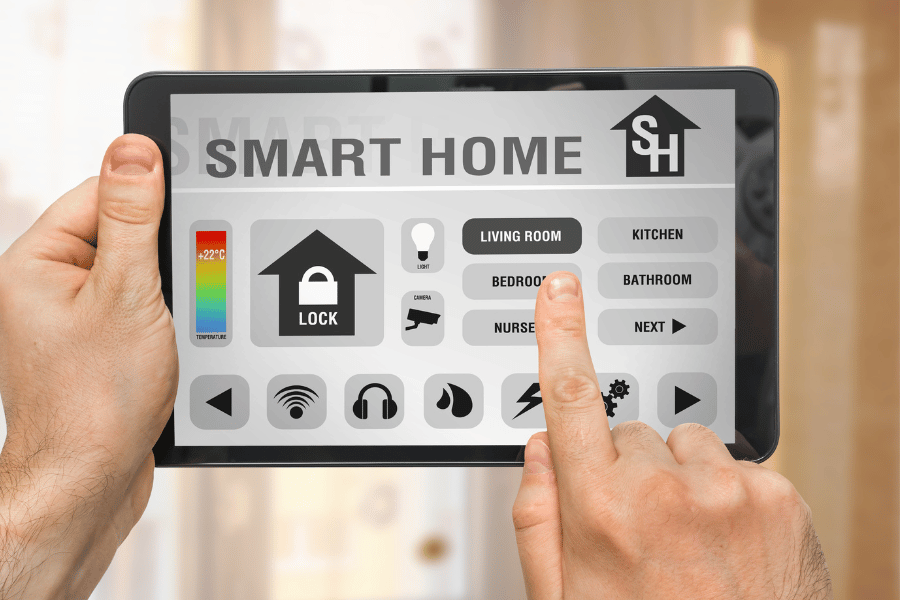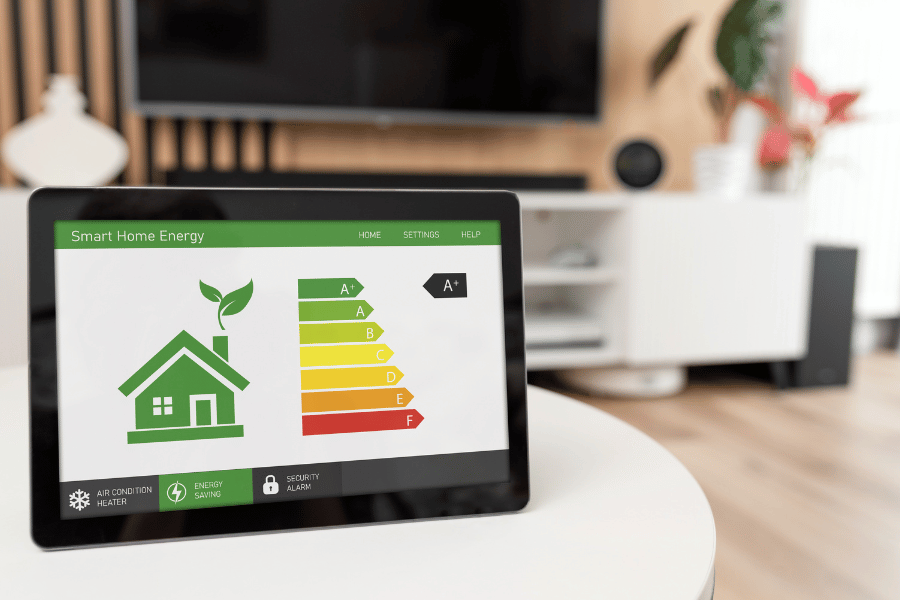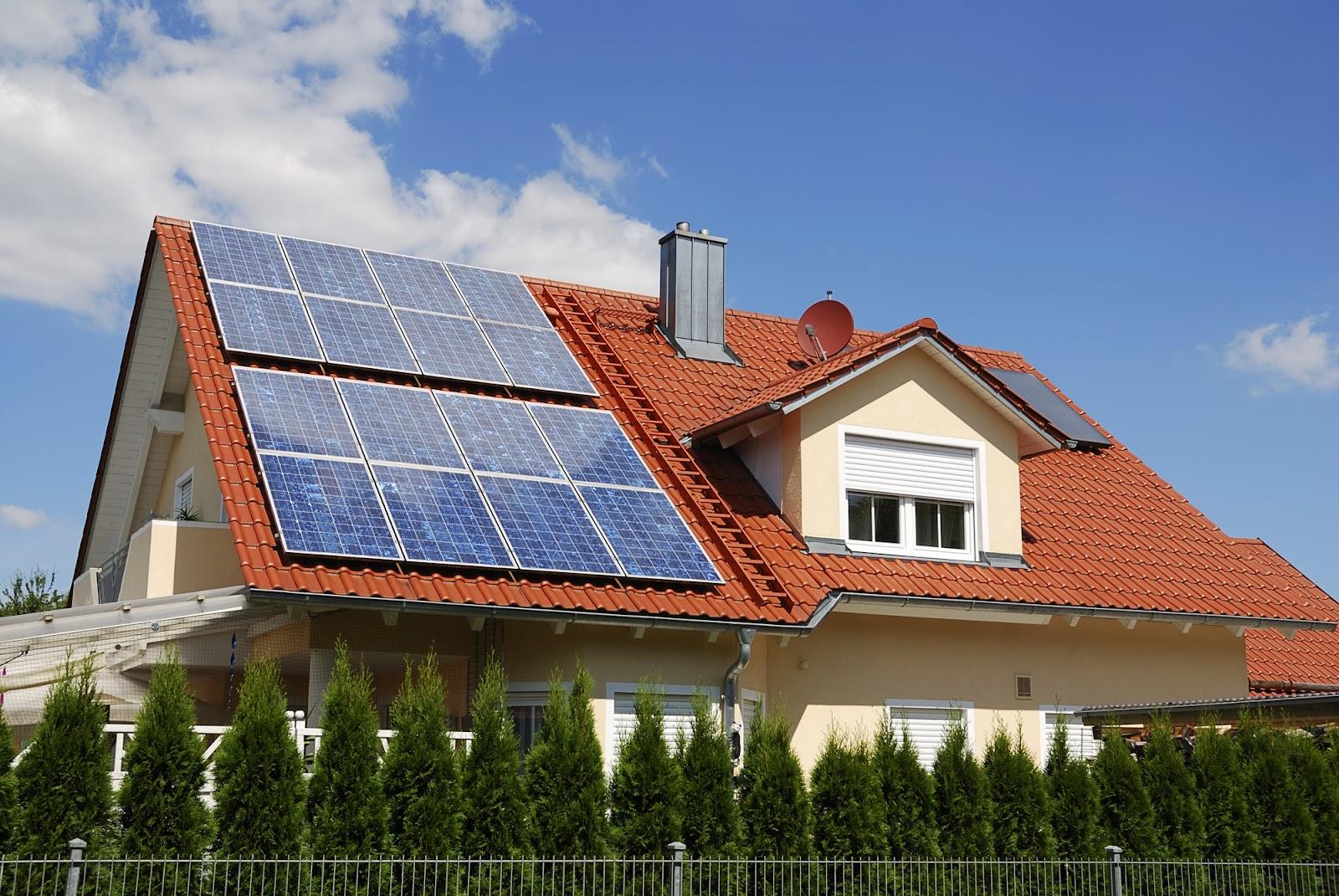7 Steps To Make Your Home Energy Efficient
May 02nd, 2024
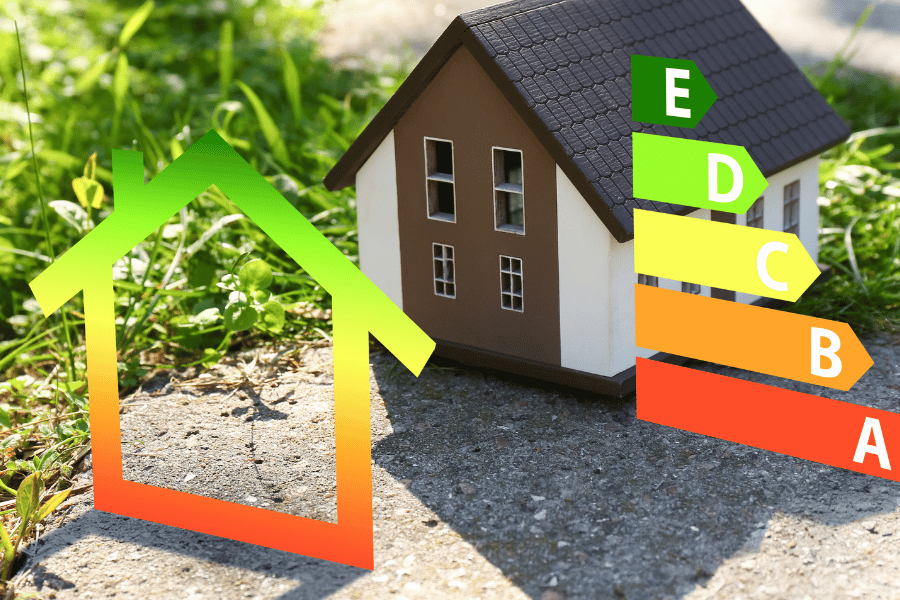
Steps To Make Your Home Energy Efficient
Are you considering ways to make your home energy efficient? Here are the steps to achieve an energy-efficient home and the benefits of doing so.
A more energy-efficient home means lower bills and reduced carbon footprint. There are many reasons why you should make your home more energy efficient. Whether you live in an older home or a new one, there are many simple and inexpensive ways to save energy.
According to the United States Energy Information Administration, the average US home uses around 867 kilowatt hours of electricity a month, with the most significant share of that energy being spent on essential utilities such as air conditioning and heating. With new technology, there are many ways to reduce that.
As our world is changing and embracing sustainability, energy-efficient homes are becoming a popular trend. According to Climate Action, energy efficiency does save you money, so having an eco-friendly home is an easy way to save yourself some money when being a homeowner.
More energy-efficient products may seem expensive at the time, but they can save you money in the long run and lower your bills. You can make your home more energy efficient in many ways, from simply sealing cracks, replacing filters, and turning off lights. You do not need to go above and beyond when having an eco-friendly home; just start with the basics.
Here is how you can make your home energy efficient.
Chapters
1. Look At The Numbers
The first step to reducing your energy bill is to look and find out where it is being used the most. You can hire a local energy auditor or consult online tools that can walk you through your home, lifestyle, and recommendations.
There are also other ways to look at the numbers, such as a home energy monitor that can transmit data to an app on your mobile device, which will allow you to track your home's energy usage in real-time.
There are also affordable smart plugs that can tell you how much energy things are using. Several of these smart gadgets have apps that can help you track your home's energy affordably. You may also contact your utility provider for help as well.
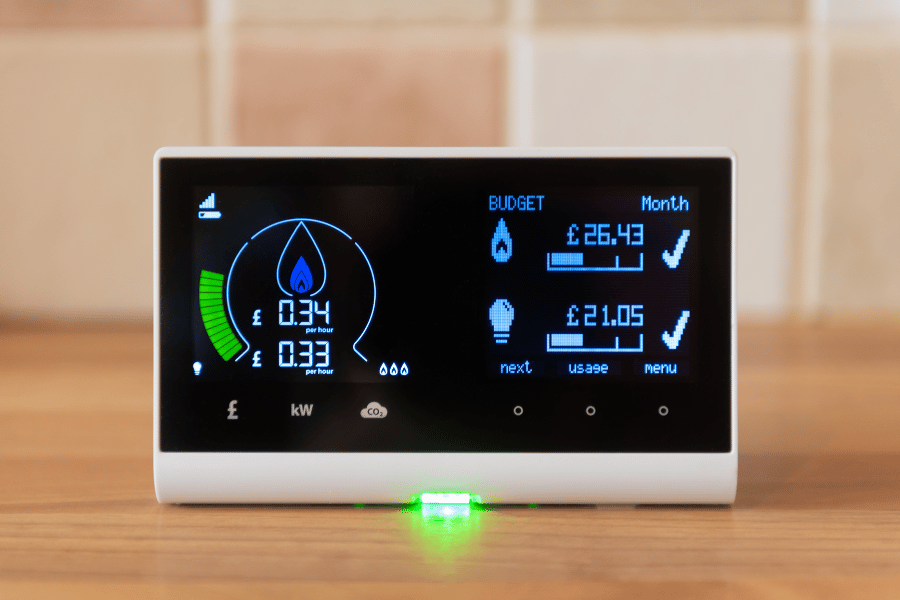
2. Work On AC and Heating
Heating a home is usually the second biggest energy absorber in the United States, right after cooling. It can sometimes be hard to want to turn down the heat or stop blasting the AC, so smart gadgets like smart thermostats can help you make these adjustments to save energy.
These smart gadgets are a great way to reduce energy as well as save money since there are many affordable options. These thermostats use sensors to tell when you are away and can learn your daily schedule and preferences while using local weather data to make energy-saving adjustments.
Electrical fans can also reduce electricity bills over an air conditioner, but that does depend on the house size, layout, and construction. Air conditioners are a significant source of the heat Island effect, where cities become hotter than the surrounding environment.
For environmental reasons, reducing your reliance on air conditioning and reversing your ceiling fans in the winter can help save energy and lower your bills. There are many small ways to reduce this; however, it depends on where you are located and your personal preferences.
3. Add Insulation
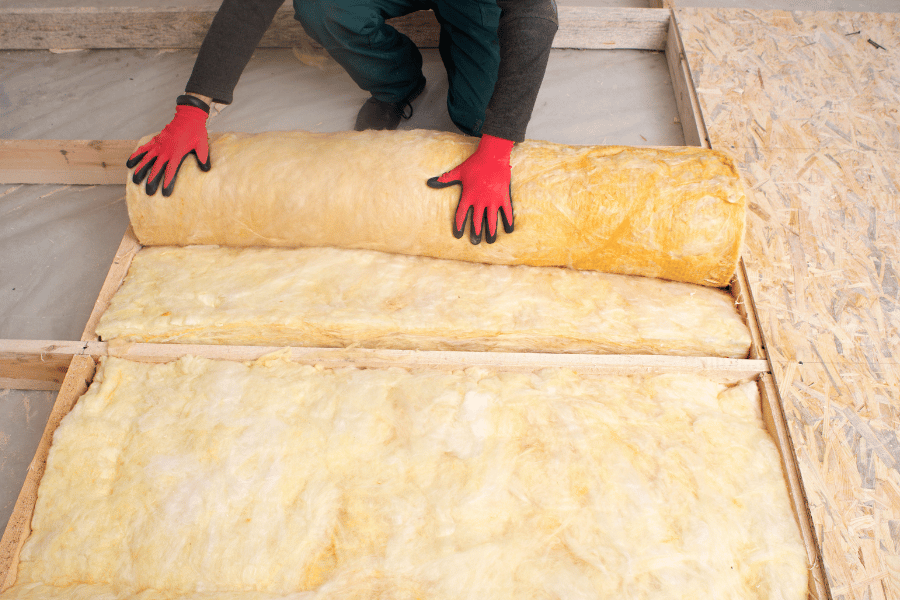
Insulation fixes will also trim your energy bill. Minor improvements such as window insulation film or putting an area rug down on an uninsulated floor can make a huge difference in how much energy it takes to heat the room.
Without proper insulation, you can have a lot of heat transfer in your home. In the summer, that means windows can let in the hot air, and in the winter, the hot air can leave the house.
Air sealing your home can be such a significant way to reduce energy and electricity bills. Sealing cracks, gaps, and leaks while adding insulation to places can help save up to 10% on your home heating and cooling costs. Adding insulation may seem like a lot, but it is very simple and can save you so much money in the long run.
Adding more insulation to your home may make it more comfortable, and it will take less heating and cooling to reach the desired temperature without blasting your unit and wasting electricity. Your attic, exterior walls, and basements are ideal for sports, and you should look into adding insulation.
4. Upgrade to Energy-Efficient Appliances
If your home and the appliances are getting older, they could be wasting a lot of energy. If you upgrade and replace washing machines, dryers, fridges, stoves, and other appliances, you may save more money in the long run.
Many new modern appliances are Energy-Star rated, which means they are certified for energy efficiency. Energy Star has made many home upgrades that are designed to work together to deliver significant energy and cost savings while helping you transition from fossil fuels to a cleaner, healthier, and more comfortable home.
According to Energy Star, the six areas of a home where efficient improvements can be made are clean heating and cooling, a super-efficient water heater, a smart thermostat, a well-insulated and sealed attic, high-performing windows and storm doors, and electric-ready appliances and equipment.
Some energy-efficient products may seem expensive at first, but in the long run, changing to these efficient products can have a huge impact on the environment as well as your utility bills.
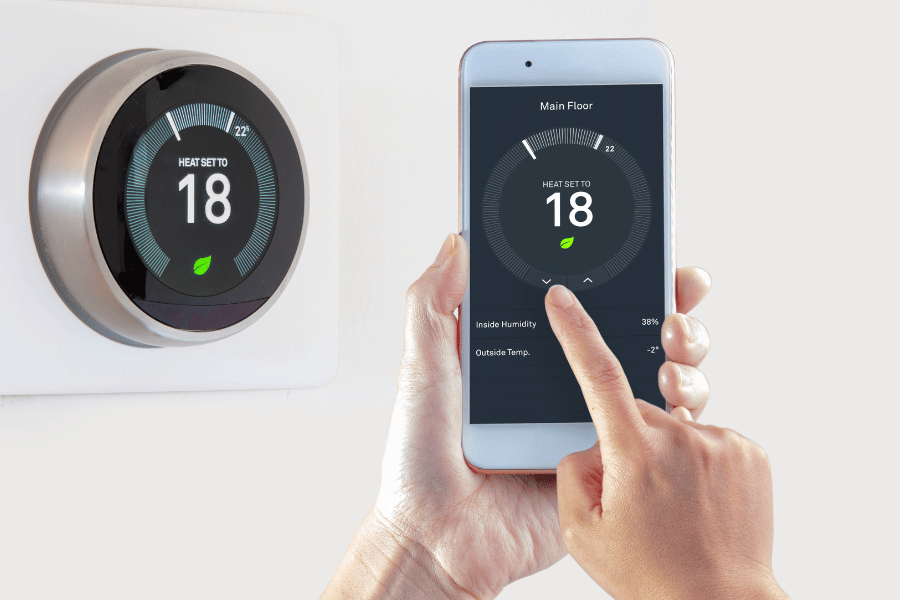
5. Keep Up Your HVAC System
If you do not want to replace your HVAC system with a more energy-efficient mode, you can also save energy by using your current one. Regular routine maintenance, including changing the filters and having a technician inspect the system at least once a year, can help keep your HVAC saving energy.
Home heating and cooling systems claim more than half of total household energy consumption and can cost you thousands of dollars to replace. Keeping your HVAC system in the best condition to save money in many ways is very important.
Here are some everyday things homeowners should do to maintain their HVAC system, keep it in excellent condition, and save energy all year long.
- Change the air filter
- Doing this every three months is recommended to keep the system running smoothly and improve air quality.
- Clean the outdoor condensing unit
- At the start of every season, remove any debris from the unit and spray down the outside to clean off any grime or dirt that has been building up.
- Clean the outdoor unit
- Clear out any plants or dirt that have been building up in the way to eliminate interference. Make sure the bushes and trees around are at least two feet on all sides.
- Check the air conditioner drain line
- Make sure to clear out any blockage that has been building up in the drain line to prevent breakdowns or any interior leaks.
- Get regular maintenance
- Bring out an HVAC technician at least once a year to check out the system and perform inspections to extend the lifespan of the system life.
6. Change Your Habits
Many ways you use your electrical items can impact your energy use. There are several simple ways to save energy in your home, especially just small changes that can make a huge impact on your energy cost, and that can start with what you do in your home.
Did you know your electronics keep running even if you turn them off? About 75% of the energy used to power electronics is consumed when they are shut off. There are many ways to decrease this number and save money.
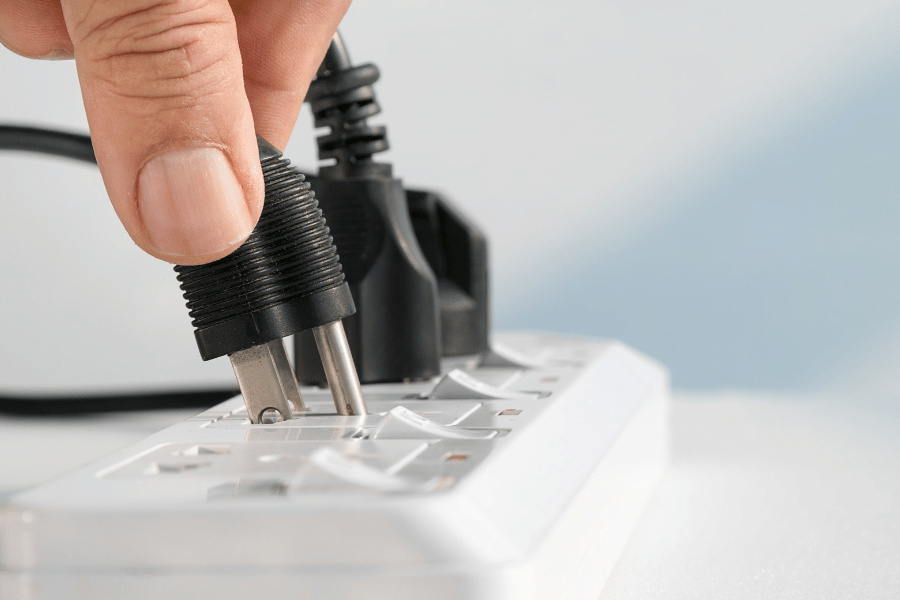
Here are some simple steps to make your home more energy-efficient and lower your bills.
- Unplug all devices when not using them
- Use power strips to disconnect multiple items at once
- Changing light bulbs to energy-efficient LEDs
- Wash your clothes in cold water
- Use natural light as much as possible
- Do not peek in the oven when you are baking because the temperature can drop
- Use your ceiling fan to raise temperatures
- Use dishwasher and washers at night to keep the house colder
- Clean appliances
- Raise the thermostat a few degrees in summer and down a few in the winter
Making small changes in your daily routine can lead to significant energy savings. While it can be challenging to change habits, the long-term financial benefits make it worth the effort.
7. Benefits of Energy-Efficient Home Improvements
Smart homes are going green, and future trends include energy-efficient appliances, smart thermostats, and solar power systems. These technologies will not only reduce our carbon footprint but also significantly reduce utility bills.
On average, energy-efficient homes sold for about 2.7% more than comparable homes without any sustainability upgrades. These upgrades are some of the most valuable improvements to make to your home, especially due to the rise in technology.
There are many benefits to sustainability and energy-efficient homes beyond financial incentives. Below are some of the pros of these eco-friendly homes.
- Reduced Energy Bills: Energy-efficient upgrades can significantly reduce energy consumption, which leads to lower utility bills over time.
- Environmental Impact: By reducing energy consumption, energy-efficient upgrades help lower greenhouse gas emissions and combat climate change, which contributes to a sustainable future
- Increased Home Value: Energy-efficient homes are in high demand in the market today, so making these upgrades can increase the resale value of your home and make it more attractive to potential buyers
- Comfort and Health: Energy-efficient upgrades often result in better insulation and improved indoor air quality, which will create a more comfortable and healthier living environment.
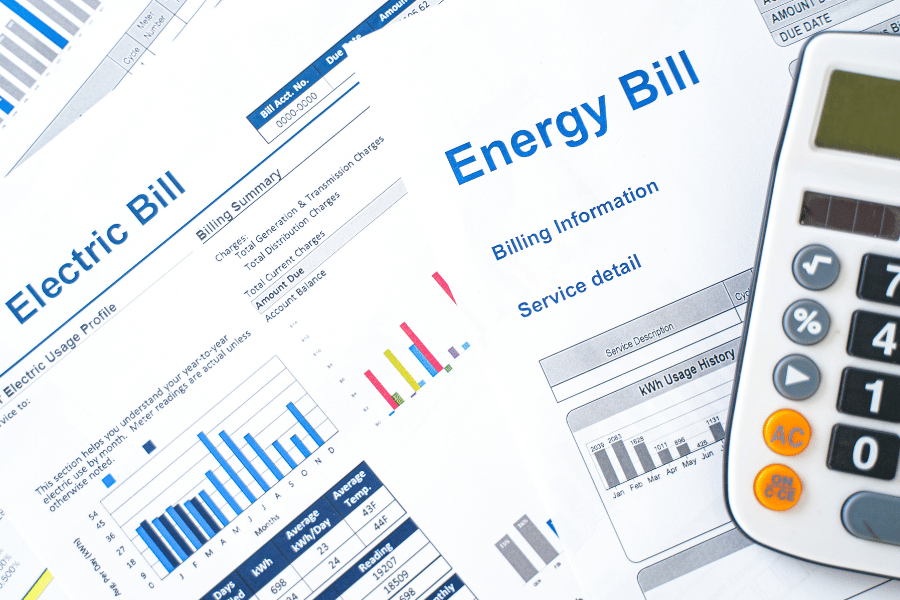
There are many other pros to having an energy-efficient home, so if you are intersted in upgrading your house, start shopping and researching now on what products and services you can add to your home for an increased living experience.
Homeowners can save up to $3,200 annually on taxes for their energy efficiency upgrades.
- Save up to $1,200 on Energy Efficient Home Improvements
- Save up to $2,000 on Cost of Upgrading to Heat Pump Technology
- Save 30% on Residental Clean Energy Equipment Upgrades
Methodology
We used information and data from different sources as well as our own data about the steps to making your home energy efficient. There were various data to use, so we put them together to create a guide to help you.
- United States Energy Information Administration
- Climate Action
- Energy-Star
- Department of Energy
- Direct Energy
Above are a few sources that we used to gather most of our information about steps to making your home energy efficient.
FAQS
What is the first step in making a home more energy efficient?
The first step to making a more energy-efficient home is conducting a home energy assessment (or audit) to determine how your home uses energy and determine the best way to cut energy use and costs.
What is a low-cost way to make your home more energy efficient?
Cheap and straightforward ways to make your home more energy efficient can be by sealing cracks, gaps, and leaks while adding insulation that can save up to 10% of home heating and cooling costs. You may also clean and replace filters regularly so systems do not work as hard.
How to lower electricity usage?
Lower electric usage can be as simple as unplugging appliances, using fans instead of the air conditioning unit, covering windows to keep sunlight from heating your home, and cooling with the stove or microwave instead of the oven.
Steps To Make Your Home Energy Efficient - The Bottom Line
An energy-efficient home is one that provides homeowners with the comfort and utility they desire while consuming minimal energy. There are various ways to lower your energy bill while helping the environment, such as installing solar panels or using tankless water heaters.
As energy costs continue to rise and energy-efficient solutions are becoming more accessible, it makes sense for more homeowners to prioritize home energy efficiency.
Although there is no specific number to show how much money you can save, statistically speaking, you will spend less with an eco-friendly home over time. If you want to build or buy an energy-efficient home, consider reaching out to a local real estate agent for assistance in the buying process.
If you are considering moving or selling, contact us or visit our website. Our team at Raleigh Realty is here to help you with any home buying or selling needs.

Ryan Fitzgerald
Hi there! Nice to 'meet' you and thanks for visiting our Raleigh Real Estate Blog! My name is Ryan Fitzgerald, and I'm a REALTOR® in Raleigh-Durham, NC, the owner of Raleigh Realty. I work alongside some of the best Realtors in Raleigh. You can find more of my real estate content on Forbes, Wall Street Journal, U.S. News and more. Realtor Magazine named me a top 30 under 30 Realtor in the country (it was a long time ago haha). Any way, that's enough about me. I'd love to learn more about you if you'd like to connect with me on Facebook and Instagram or connect with our team at Raleigh Realty. Looking forward to connecting!
Related Blogs
